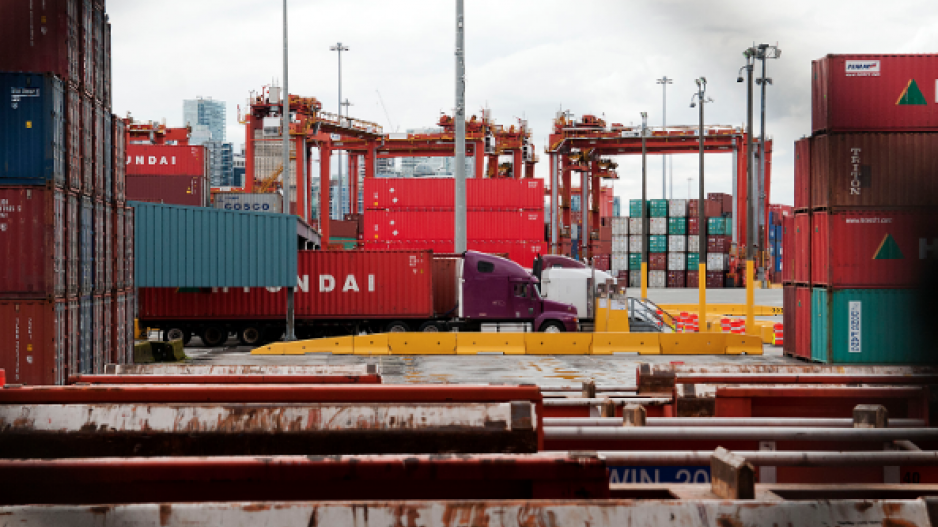Those looking for a reprieve in 2020 from a series of strong headwinds that pummelled Canadian exports and international trade in 2019 should prepare for more of the same.
That’s the opinion of a number of top observers of Canada’s role in global geopolitics and trade who noted the 2020 event with the biggest potential impact on Canadian standings globally may be the November 3 U.S. presidential election pitting incumbent Donald Trump against a yet undetermined rival Democratic nominee.
That’s because a number of crucial trade issues facing Canada – U.S. protectionist tariff policies, trade frictions with China and the overall deterioration of the global free-trade environment – will be directly affected by who occupies the White House in the next four-year term.
“Naturally, the big event in 2020 is going to be the U.S. presidential election,” said Omar Allam, founder and CEO of Ottawa’s Allam Advisory Group and a former diplomat. “It’s a wait-and-see approach. The fact that the election is taking place, it will keep us on the sidelines to see what happens. Because if Trump doesn’t get re-elected, it’s going to be a whole new different world out there. And if he continues, then the question will become, what type of oxygen is going to get sucked out of the foreign affairs and trade department?”
University of British Columbia political science professor and former Institute of Asian Research director Yves Tiberghien agreed, since Washington’s influence on trade with Canada and B.C. is obviously immense, even without considering the contention by Trump that the White House may consider using arrested Huawei Technologies Co. Ltd. CFO Meng Wanzhou as a bargaining chip in trade talks with China.
“U.S. politics is a huge wild card, whatever happens,” Tiberghien said. “For Canada-China relations, the U.S.-China relationship is the biggest factor by far. The fundamental trend is worsening; there’s the tightening of security, the tariff war…. So the relationship is on the slide down, and there’s some volatility there that will affect what Canada can and cannot do.” Many observers have pointed to the Trump White House and its protectionist trade policies as the key driver for a global unravelling of multilateral free trade, including a reworked North American free-trade agreement. But one analyst cautioned that what would spring from a Democratic victory would be far from rosy for Canadian exports.
“It is not as clearcut as most people are paving it,” said Carlo Dade, director of the Trade & Investment Centre at the Canada West Foundation. “It’s not like you get rid of Trump and we’ll be fine.… On the trade front, people forget that both Barack Obama and Hillary Clinton ran against NAFTA [the North American Free Trade Agreement] in the primaries in 2008. So the election could make things worse for us on the trade front with the Americans.”
There are slivers of optimism, however. Dade noted that the signing of the Canada-United States-Mexico Agreement on December 10 will likely bolster some business confidence and calm some nerves frazzled during the lead-up to the deal, with about 75% of Canada’s total exports going south of the border and possibly being threatened by the loss of a free-trade deal. In addition, some business decisions that were held up by the lack of a firm deal will likely now be made, Dade said.
Grace Jaramillo, manager of the Business Asia program at the Asia Pacific Foundation of Canada, said she hopes U.S.-China tensions will ease if both sides can agree to a trade deal. Not only would that take pressure off Canada directly in the global market space, she said, but it would also boost other key trade partners like Japan and Australia that do significant business with both China and the United States.
Jaramillo pointed to the foundation’s recent report tracking Canada’s progress after one year in the Comprehensive and Progressive Agreement for Trans-Pacific Partnership (CPTPP), which showed Canadian exports to the other 10 countries in the trade zone decreased 3% in the first three quarters of this year (compared with the same period last year) to reach $19 billion in value.
“The report really exposes the fact that CPTPP countries are heavily influenced now by the U.S.-China trade war,” Jaramillo said. “And that is causing sluggish economies across the Asia-Pacific. It is slowing market demand across the board, and that’s why Canada’s performance has been sluggish within this new enterprise.… If U.S.-China tensions lessen, Canada can benefit from that.”




